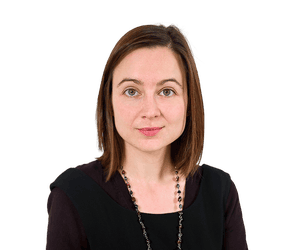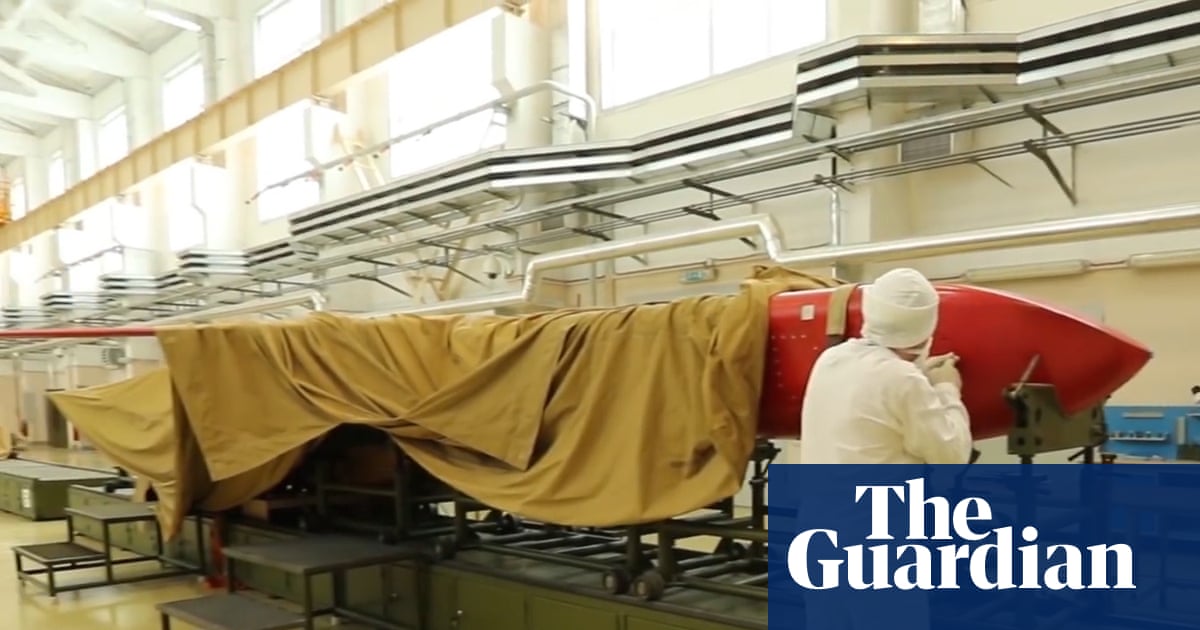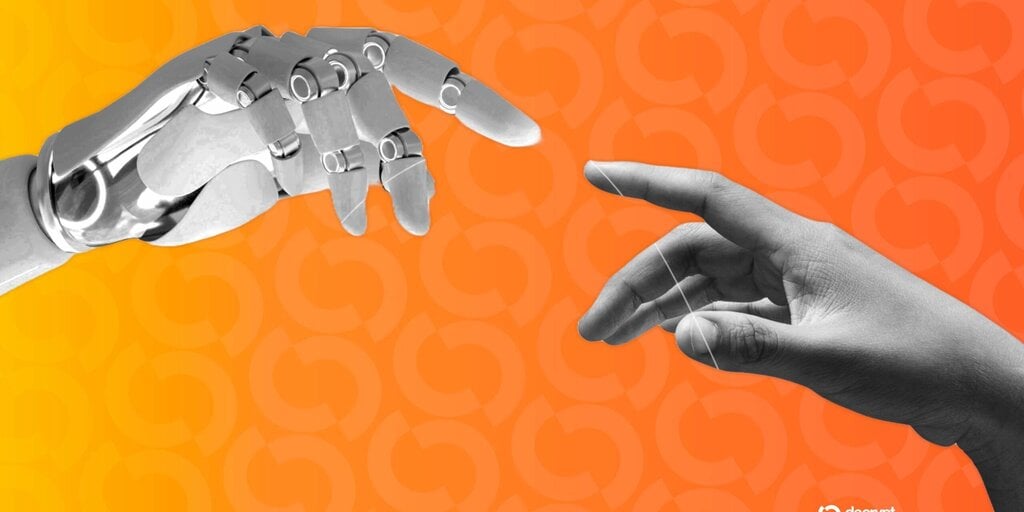Leaders to ‘discuss work on security guarantees’ and consider consequences of Russia’s ‘stubborn’ refusal to end war
We are getting a bit more detail on this Thursday’s meeting of the Coalition of the Willing, as confirmed by the Élysée Palace earlier (14:22).
The leaders will “discuss work on security guarantees for Ukraine carried out in recent weeks and take stock of the consequences to be drawn from Russia’s attitude, which stubbornly refuses peace,” the French presidency said in a statement quoted by the AFP.
The source said that the main topic of the Paris talks will be security guarantees for Ukraine and “promoting diplomacy, because the Russians are wriggling out again” of the efforts to end the war.
US president Donald Trump is not expected to take part in the gathering, the source added.
Separately, ministers from the ’coalition’ countries will on Wednesday discuss military support for Ukraine, a spokesperson for French armed forces minister Sébastien Lecornu said.
Key events
-
Leaders to ‘discuss work on security guarantees’ and consider consequences of Russia’s ‘stubborn’ refusal to end war
-
Russia suspected of jamming GPS on plane carrying Ursula von der Leyen – full story
-
‘Coalition of the willing’ to meet on Thursday, Élysée confirms
-
No suggestion Russian Zapad military drills could lead to attack on Nato, Germany’s army chief says
-
‘There is a plan coming to shape,’ EU commission spokesperson insists on Ukrainian security guarantees
-
Europe ‘most affected region globally’ by GPS jamming, commission says
-
Von der Leyen’s plane affected by GPS jamming over weekend, commission confirms
-
Nato-Ukraine council to meet in Brussels today at Ukraine’s request
-
Von der Leyen’s plane hit by alleged Russian GPS interference in Bulgaria — report
-
Turkey working towards fair, lasting peace in Ukraine, Erdoğan tells Putin
-
‘Very dangerous’ situation shows need to strengthen border, defence, Lithuanian president says
-
EU’s von der Leyen stresses importance of bloc’s eastern border, outlines security guarantees for Ukraine
-
European capitals working on ‘pretty precise plans’ for deployment to Ukraine as part of security guarantees, EU’s von der Leyen says
-
Zelenskyy to meet European leaders in Paris on Thursday — source
-
Morning opening: Tick-tock
Lithuania’s former foreign minister Gabrielius Landsbergis does not seem to be particularly impressed by the pretty ‘meh’ reaction from the European Commission to the reported GPS jamming on plane carrying Ursula von der Leyen.
In a post on X, he said mockingly:
“Deeply concerned to hear about the deeply concerning GPS interference that diverted @vonderleyen‘s flight. Europe stands united in expression of deep concerns and must commit to the deployment of ever-deepening concerns moving forward.”
In responses to his post, he added:
“In order to address such concerns, another summit of the Coalition of the Concerned must be scheduled in the coming days and weeks.”
Russia suspected of jamming GPS on plane carrying Ursula von der Leyen – full story

Jennifer Rankin
in Brussels
and Oliver Holmes
Russia is believed to have jammed the satellite signal of a plane carrying the European Commission president, Ursula von der Leyen, over Bulgaria, reportedly forcing it to circle the airport for an hour.
Von der Leyen was travelling to Plovdiv on Sunday when her charter plane lost electronic navigation aids, delaying its arrival in the central Bulgarian city.
Interference with satellite navigation has become increasingly common in airspace near Russia and it remains unclear whether von der Leyen was deliberately targeted. Asked about this point, EU spokesperson said: “The question is best asked to the Russians.”
The incident happened during a four-day trip by von der Leyen to seven EU member states on the bloc’s eastern border. In Vilnius on Monday, von der Leyen did not mention the incident, but spoke of “constant military and hybrid threats” facing Lithuania.
In March 2024, Russia was believed to have been responsible for jamming the signal of a plane carrying the then UK defence secretary, Grant Shapps, who was returning to the UK from Poland. The RAF plane experienced GPS interference for about 30 minutes while it flew near the Russian exclave of Kaliningrad. It was reported at the time that it was unclear whether Shapps was the target.
GPS jamming and “spoofing” – an electronic warfare tactic that causes incorrect navigation information to be displayed – has increased since Russia’s full-scale invasion of Ukraine in 2022, and escalated even more sharply in the last year.
In June, 13 EU member states raised the alarm about jamming and spoofing threats disrupting air and sea travel. Poland recorded 2,732 cases of electronic interference in January 2025, up from 1,908 in October 2023, while Lithuania recorded 1,185, up from 556 in March 2024, according to an internal EU document drafted in May.
The document describes interference to global satellite navigation systems as “not random incidents but a systemic, deliberate action by Russia and Belarus”. It added that “causing significant damage has been simple and cheap” and was likely to continue without “proportional countermeasures”.
European Council president António Costa argued that the EU could not risk escalating tensions with the US over trade and tariffs at the same time as the bloc’s eastern borders remained under threat from Russia.
Speaking at the Bled Strategic Forum in Slovenia, he said it would be have been an imprudent risk to risk the relationship with the US.
That is why … we chose diplomacy over escalation. We gave space to dialogue, we chose restraint because we are responsible,” he said, as reported by Reuters.
‘Coalition of the willing’ to meet on Thursday, Élysée confirms
And we now have an official confirmation that the Coalition of the Willing will meet this Thursday to discuss what’s next on Ukraine war, as first reported by the AFP (10:05).
The meeting, co-chaired by France’s Emmanuel Macron and Britain’s Keir Starmer, will take place in a hybrid format and focus on security guarantees for Ukraine and a united response to Russia’s refusal to end the war, the Élysée Palace said.
Ukraine’s Volodymyr Zelenskyy is also expected to take part.
No suggestion Russian Zapad military drills could lead to attack on Nato, Germany’s army chief says
Germany does not expect Russian attacks on Nato territory under the cover of Moscow’s Zapad military drills which are set to kick off in two weeks, German chief of defence Carsten Breuer said, reported by Reuters.
“We don’t have any indication that preparations for an attack are taken under the cover of the exercise. But we will be on our guard, not just the German forces, but Nato,” Breuer told reporters in Berlin.
‘There is a plan coming to shape,’ EU commission spokesperson insists on Ukrainian security guarantees
The commission was also asked about von der Leyen’s FT interview on plans for Ukraine, with journalists doubting if the plans were as advanced as she made them sound (10:24).
Arianna Podestà said that commission representatives “participate in these technical level talks,” and von der Leyen remains in contact with other leaders.
“Therefore, it is the view of the president formed through the information that she gets in discussion with the leaders, as well as technical level engagements, that there is a plan that is coming to shape.
There is a clear roadmap, as she has said, towards building these security guarantees.
She has said that, for example, in last week’s meeting of the Coalition of the Willing and defence chiefs, they have worked out a pretty precise plan for this engagement.”
Europe ‘most affected region globally’ by GPS jamming, commission says
EU transport spokesperson Anna-Kaisa Itkonen also offered a bit more detail on the issue of GPS jamming and its impact on operations.
She said:
“Generally, we have been seeing a quite a lot of such jamming and spoofing activities, notably in the eastern flank of Europe.
Europe is the most concerned region in the or most affected region globally, on this.
There was a letter sent by 13 member states to the Commission in June this year, and they drew our attention additionally to this issue, which is something that is becoming almost daily practice.
It has serious impacts on maritime and aviation and obviously with economic impact as well.”
Von der Leyen’s plane affected by GPS jamming over weekend, commission confirms
European Commission spokesperson Arianna Podestà has now confirmed that von der Leyen’s plane was affected by “GPS jamming,” with the Bulgarian authorities suspecting this was “due to blatant interference from Russia.”
“We are, of course, aware and used to somehow to the threats and intimidations that are [a] regular component of Russia’s hostile behaviour.
Of course, this will only reinforce even further our unshakable commitment to ramp up defence capabilities and support for Ukraine.”
She stressed that the plane landed safely in Bulgaria.
“This incident actually underlines the urgency of the mission that the President is carrying out in the frontline member states.”
Nato-Ukraine council to meet in Brussels today at Ukraine’s request
Ukrainian foreign minister Andrii Sybiha has just said that an extraordinary meeting of the Nato-Ukraine council will be held in Brussels today “at the request of Ukraine and in response to Russia’s recent massive air attacks”.
“We anticipate a focused discussion on joint steps to adequately respond to Russia’s rejection of peace efforts and escalating terror against Ukrainians.
We are grateful to Nato and all allies who continue to show strong support for Ukraine and meaningful peace efforts. Moscow must feel a stronger pressure as the consequence of it prolonging the war.”
Von der Leyen’s plane hit by alleged Russian GPS interference in Bulgaria — report
In the last few minutes, the FT also reported that a suspected Russian interference attack targeted von der Leyen’s plan on approach to Bulgaria over the weekend, forcing the plane to land using paper maps.
The newspaper quoted (£) an official saying that “the whole airport area GPS went dark,” prompting the pilot to circle over the Plovdiv airport for an hour and eventually land using paper maps.
The Guardian has not independently verified the report.
The so-called GPS jamming, which is believed to be caused by Russia, has been a recurring problem affecting parts of eastern Europe, particularly over the Baltic Sea, in the last few years.
In 2024, a similar incident involved an RAF plane taking the then defence secretary Grant Shapps back to UK from Poland, and flying near the Russian exclave of Kaliningrad.
Mobile phones could no longer connect to the internet and the aircraft was forced to use alternative methods to determine its location, the source said.
Turkey working towards fair, lasting peace in Ukraine, Erdoğan tells Putin
Meanwhile, we received a readout from the Turkish president Recep Tayyip Erdoğan’s meeting with Russia’s Vladimir Putin on the sidelines of the Shanghain Cooperation Organisation summit in China.
Erdoğan’s office said that he told Putin that Ankara was working to find a fair and lasting end to the war in Ukraine and that talks between the parties in Istanbul were contributing to peace efforts, Reuters reported.
The pair also talked about bilateral relations, peace efforts between Azerbaijan and Armenia, and the situation in the Middle East.
‘Very dangerous’ situation shows need to strengthen border, defence, Lithuanian president says
Lithuania’s Nausėda also speaks about the country’s plans to use more EU funding to strenghten its border and defence lines after incidents with suspected Russian drones crossing into Lithuania in recent months.
“Lithuania understands the situation now is very dangerous, very fragile, and we have to be able to detect the UAVs [Unmanned Aerial Vehicles] which are crossing from time to time over border, and we should be able to shoot them down if needed.
So this is about safety of our people, and we take this very seriously.”
And that ends their press conference.
EU’s von der Leyen stresses importance of bloc’s eastern border, outlines security guarantees for Ukraine
Appearing alongside Lithuanian president Gitanas Nausėda, the EU’s von der Leyen is now speaking about the EU’s plans for supporting the countries on the bloc’s eastern border.
She says that EU member states with a direct border with Russia and Belarus “will receive additional funding,” as “it is in the European interest that we have the protection of the border here.”
Von der Leyen also speaks about the potential security guarantees for Ukraine.
She says the EU was working on security guarantees together with the Coalition of the Willing, with “a strong, well-equipped and experienced” Ukrainian army set to be the first line of defence, supported by “a multinational group from the Coalition of the Willing with the backstop of the Americans.”
The former German defence minister adds that this will be supported by the EU’s “own defence posture.”
She also says that a potential EU membership for Ukraine would also effectively offer another guarantee.
That appears to confirm what she said in the FT interview.
European capitals working on ‘pretty precise plans’ for deployment to Ukraine as part of security guarantees, EU’s von der Leyen says
European Commission president Ursula von der Leyen is touring the bloc’s seven countries on the eastern border with Russia, talking about preparedness and plans to invest in European defence industry.
She will be in Lithuania and Romania later today, after visiting Latvia, Finland, Estonia, Poland and Bulgaria over the weekend.
But in an interview with the Financial Times newspaper (£) published this morning, she said that European capital were working on “pretty precise plans” for potential military deployment to Ukraine to provide security guarantees, and argued there was a “clear road map” for such deployments.
She said capitals were working on plans for “a multinational troop [deployment] and the backstop of the Americans”.
Let’s see if she goes further in her comments later today.
Zelenskyy to meet European leaders in Paris on Thursday — source
And as if on cue, we are now getting reports that Zelenskyy will meet with European leaders in Paris on Thursday to discuss the next steps and what can be done to raise pressure on Russia, a source told AFP.
“We’re planning such a meeting” between Zelensky and “European leaders”, the source said, adding that Trump “is not so far expected to be there.”
Morning opening: Tick-tock

Jakub Krupa
More than two weeks on from the Alaska summit between US president Donald Trump and Russian president Vladimir Putin, the end of the war in Ukraine does not appear to be any closer.
Trump claimed at the time that he was close to a breakthrough that could lead to a bilateral meeting between Putin and Ukraine’s Volodymyr Zelenskyy.
But that does not seem to be any closer either.
Zelenskyy said last week that Ukraine would “remind everyone about it” as Trump’s semi-deadline of “two, maybe three weeks” symbolically expires today.
On Friday, French president Emmanuel Macron warned that if Putin missed the Monday deadline, it would be yet another example of him trying to ‘play’ Trump – something that, Macron said, could not go unanswered and should prompt further sanctions.
But attending a summit in China over the weekend, the Russian president repeated his hardline position, reiterating his opposition to Ukraine’s plans to join Nato and calling for “a fair balance in the security sphere,” which is widely seen as shorthand for his expansive demands on Europe’s security.
“In order for a Ukrainian settlement to be sustainable and long-term, the root causes of the crisis, which I have just mentioned and which I have repeatedly mentioned before, must be eliminated,” Putin said.
Meanwhile, Ukraine said it suspected Russian involvement in the murder of former parliamentary speaker Andriy Parubiy over the weekend.
“We know that this crime was not accidental. There is a Russian involvement. Everyone will be held accountable before the law,” police chief Ivan Vyhivskyi said on Facebook, Reuters reported.
It all suggests another busy week, as leaders try to find new ways forward.
I will bring you all the key updates here.
It’s Monday, 1 September 2025, it’s Jakub Krupa here, and this is Europe Live.
Good morning.
Source link


